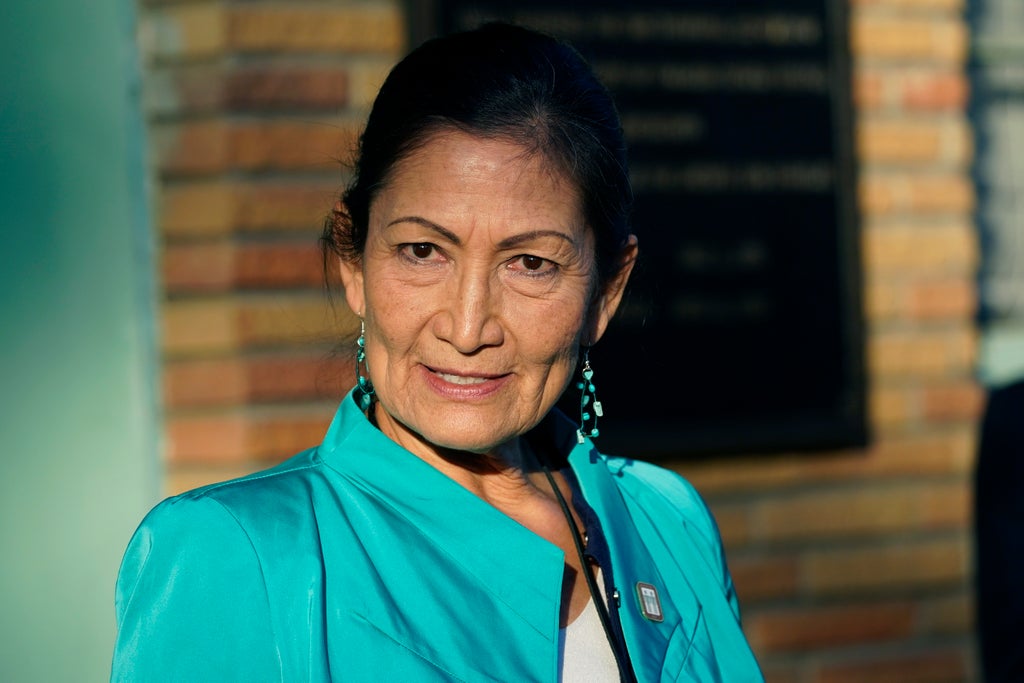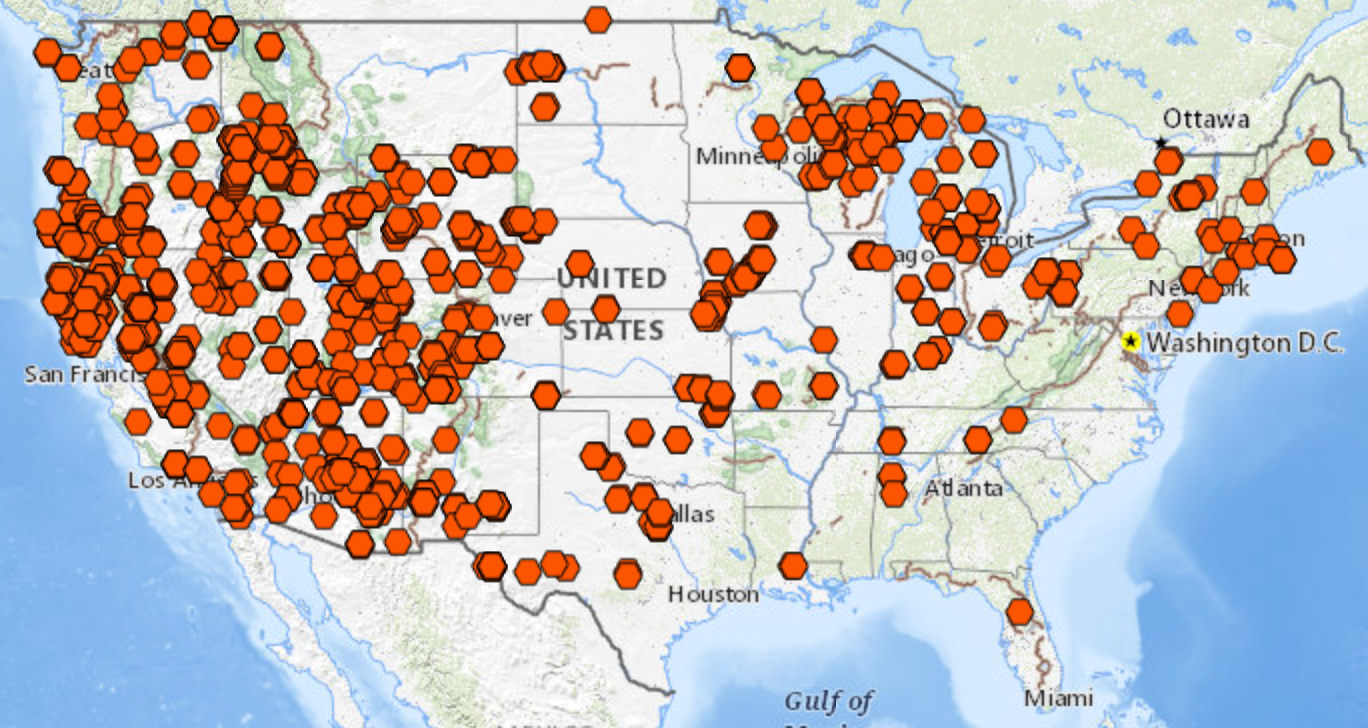
There are 660 place names in the US that incorporate the word "squaw”, a slur which refers to Native women. A new campaign helmed by the US Interior Department and aided by Native representatives aims to change them all.
The New York Times reports that the Interior's effort – led by Deb Haaland, the first Native Cabinet secretary – will strip the word from rivers, mountains, lakes and all other geographic sites where it is used.
A task force, which includes Native representatives, has been asked to provide suggestions for replacement names. Those suggestions will then be sent for final approval to the Board on Geographic Names, which standardises US place names. The National Parks Service will be doing the same for the lands it oversees.
“Words matter, particularly in our work to make our nation’s public lands and waters accessible and welcoming to people of all backgrounds,” Ms Haaland said in a statement. “Consideration of these replacements is a big step forward in our efforts to remove derogatory terms whose expiration dates are long overdue.”
The etymology of the word has evolved over time. Experts believe the term may have been used long ago to mean woman, but is now considered a racist and misogynistic slur, the AP reported.
Some states have already moved to erase the word from use at nonfederal locations. Oregon, Maine, Montana and Minnesota have already begun changing the names, and California's legislature will vote on a bill aimed at renaming more than 100 place names throughout the state.

There has been some initial pushback to the proposed name changes, but largely from individuals who will not be affected by the Interior's campaign. Residents in Squaw Lake, Minnesota and Fenton, Michigan – which borders a body of water called Squaw Lake – expressed concerns that their town and lake names would have to be changed. However, as neither fall under federal jurisdiction, they will not be changed, at least for now.
Perhaps one of the most high-profile places actually affected by the name change is Squaw Valley, the popular skiing area in Lake Tahoe that hosted the Winter Olympics in 1960. While it was not forced to change its name, as it is a private resort, the area rebranded as Palisades Tahoe in September.
Another more familiar site that will soon have a name change is Squaw Mountain, near Provo, Utah.
An interactive map created by the US Geological Survey details all the known spots where the word "Squaw" will be replaced. While place names using the word can be found around the country, the map makes it clear that the vast majority of the names that need changing are in the west.
Once the federal government changes the names of the lands it manages, the responsibility will fall to the states to decide whether or not they will prioritise removing the word from their atlases.
As mentioned above, several states have already made the move, and some have used it as a way to honour their heroes. In 2003 Arizona renamed Squaw Peak near Phoenix to honour Lori Piestewa, a US Army soldier killed in Iraq and the first Native American woman to die in combat while serving the US military.
This isn't the first time the US has taken steps to remove offensive slurs from its place names. The Board on Geographic Names previously moved to change the names of locations that were insulting to African Americans and Japanese people.







